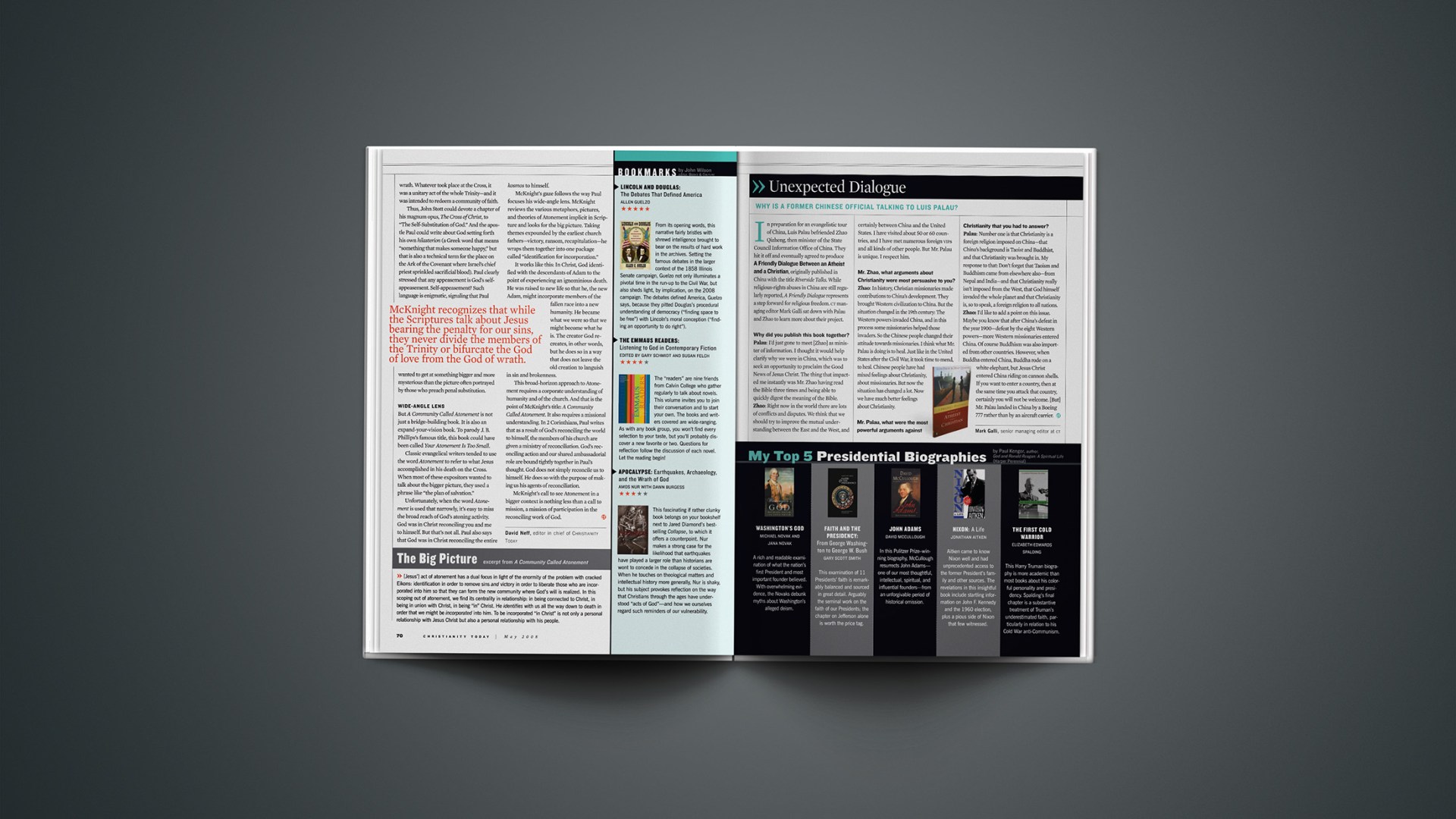In preparation for an evangelistic tour of China, Luis Palau befriended Zhao Qizheng, then minister of the State Council Information Office of China. They hit it off and eventually agreed to produce A Friendly Dialogue Between an Atheist and a Christian , originally published in China with the title Riverside Talks. While religious-rights abuses in China are still regularly reported, A Friendly Dialogue represents a step forward for religious freedom. CT managing editor Mark Galli sat down with Palau and Zhao to learn more about their project.
Why did you publish this book together?
Palau: I’d just gone to meet [Zhao] as minister of information. I thought it would help clarify why we were in China, which was to seek an opportunity to proclaim the Good News of Jesus Christ. The thing that impacted me instantly was Mr. Zhao having read the Bible three times and being able to quickly digest the meaning of the Bible.
Zhao: Right now in the world there are lots of conflicts and disputes. We think that we should try to improve the mutual understanding between the East and the West, and certainly between China and the United States. I have visited about 50 or 60 countries, and I have met numerous foreign vips and all kinds of other people. But Mr. Palau is unique. I respect him.
Mr. Zhao, what arguments about Christianity were most persuasive to you?
Zhao: In history, Christian missionaries made contributions to China’s development. They brought Western civilization to China. But the situation changed in the 19th century: The Western powers invaded China, and in this process some missionaries helped those invaders. So the Chinese people changed their attitude towards missionaries. I think what Mr. Palau is doing is to heal. Just like in the United States after the Civil War, it took time to mend, to heal. Chinese people have had mixed feelings about Christianity, about missionaries. But now the situation has changed a lot. Now we have much better feelings about Christianity.
Mr. Palau, what were the most powerful arguments against Christianity that you had to answer?
Palau: Number one is that Christianity is a foreign religion imposed on China—that China’s background is Taoist and Buddhist, and that Christianity was brought in. My response to that: Don’t forget that Taoism and Buddhism came from elsewhere also—from Nepal and India—and that Christianity really isn’t imposed from the West, that God himself invaded the whole planet and that Christianity is, so to speak, a foreign religion to all nations.
Zhao: I’d like to add a point on this issue. Maybe you know that after China’s defeat in the year 1900—defeat by the eight Western powers—more Western missionaries entered China. Of course Buddhism was also imported from other countries. However, when Buddha entered China, Buddha rode on a white elephant, but Jesus Christ entered China riding on cannon shells. If you want to enter a country, then at the same time you attack that country, certainly you will not be welcome. [But] Mr. Palau landed in China by a Boeing 777 rather than by an aircraft carrier.
Mark Galli, senior managing editor at CT
Copyright © 2008 Christianity Today. Click for reprint information.
Related elsewhere:
A Friendly Dialogue Between an Atheist and a Christian is available from ChristianBook.com and other retailers.
Our recent China coverage also includes, “Great Leap Forward,” “Audio Slideshow: Changing China ,” “Hungry for Jesus,” “From Mao to Moses,” and more.
Articles on atheism and apologetics are available in our special section.










